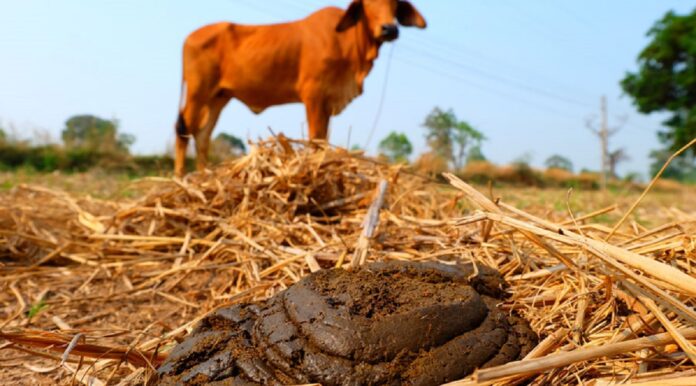When it comes to farmyard manure, poultry manure and cow dung are among the most commonly used. These natural fertilizers are prized for their ability to boost crop yields and improve soil structure and fertility. Both are also integral components in organic fertilizer formulations and composting processes.
While poultry manure and cow dung come from different sources, they share several similarities. Knowing these similarities and differences helps farmers make informed decisions about which manure to use for optimal crop production. In this post, we will compare them to help you choose the best option for your agricultural needs.
Read also: Vermiculture and Vermicomposting; Taking Advantage of Magical Earthworms
Similarities Between Poultry Manure and Cow Dung
- Rich Sources of Plant Nutrients: Both provide essential nutrients that promote healthy plant growth.
- Preferred in Organic Farming: These manures are popular in organic farming due to their natural origin and beneficial properties.
- Improve Soil Structure: They enhance soil structure, making it more fertile and better at retaining moisture.
- Farmyard Manure: Both are considered farmyard manure, readily available on many farms.
Differences Between Poultry Manure and Cow Dung
- Source: Poultry manure comes from chickens, while cow dung comes from cattle.
- Nutrient Content: The nutrient composition of these manures varies, affecting their suitability for different crops.
Poultry Manure
This is primarily obtained from commercial poultry farms, especially those using deep litter or battery cage housing systems. In deep litter systems, poultry droppings mix with litter or wood shavings, resulting in a powdery form. In battery cage systems, the manure consists solely of droppings. Regardless of the source, the manure can be collected and used as fertilizer.
Nutrient Content
According to analysis, poultry droppings contain approximately 5% nitrogen, 4% phosphorus, and 2% potassium. It is more acidic compared to other organic manures, which makes it necessary to compost it properly before use to ensure crop safety.
Read also: 4 Proven Benefits of Organic Matter (not Organic Material) to Soil
Advantages of Poultry Manure
- High Nutrient Content: It is a rich source of nitrogen, phosphorus, and potassium.
- Cost-Effective: It is generally less expensive than cow manure.
- Accessibility: This manure is more readily available, especially from commercial poultry operations.
Cow Dung
In many parts of Africa, cattle rearing is commonly done through nomadic practices, where cattle graze over large areas and gather under sheds after grazing. This method makes it challenging to collect large quantities of dung. However, the dung that is collected still contains valuable nutrients.
Nutrient Content
Cow dung has an NPK (nitrogen, phosphorus, potassium) analysis of approximately 3% nitrogen, 2% phosphorus, and 1% potassium. Although it is a weaker fertilizer compared to poultry manure, it still provides essential nutrients to crops.
Additionally, because cattle feed on grasses and weeds, there is a concern that their dung may contain weed seeds, which can be transferred to the farm.
Advantages of Cow Dung
- Beneficial Bacteria: It contains good bacteria that release nutrients slowly, preventing plant burn.
- Soil Improvement: It enhances soil structure and increases the soil’s ability to support plant growth.
Caution
Never use fresh droppings from cows or poultry on crops, as they can burn plants. Ensure that these manures are well-decomposed before application to avoid damaging your crops.
Conclusion
Your choice will depend on several factors, including availability, cost, and specific crop needs. The dung may be a convenient option if you have access to a cattle herd. However, poultry manure is often preferred due to its higher nutrient content and cost-effectiveness.
In most situations, poultry droppings or manure are generally the better option and are recommended for enhancing crop production.
Call to Action
Farmers, it’s time to optimize your crop production! Consider incorporating poultry manure or cow dung into your soil management practices to boost yields and improve soil health. Making informed decisions about which manure to use can lead to more sustainable and productive farming.


